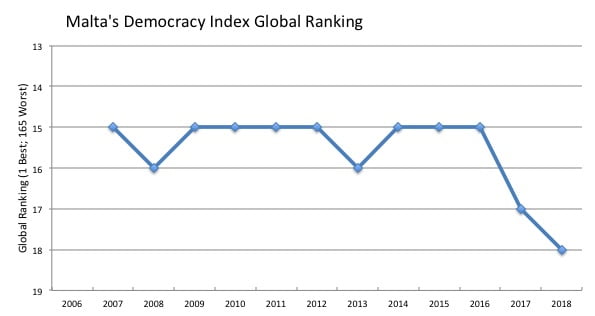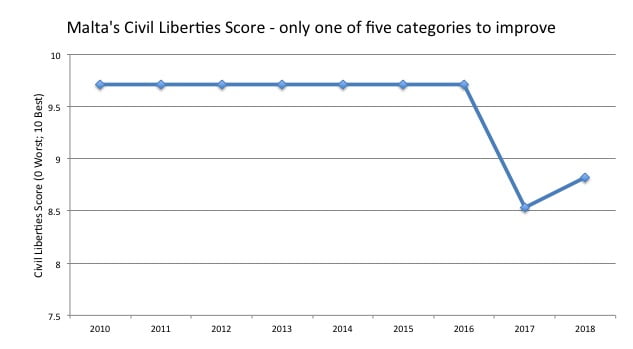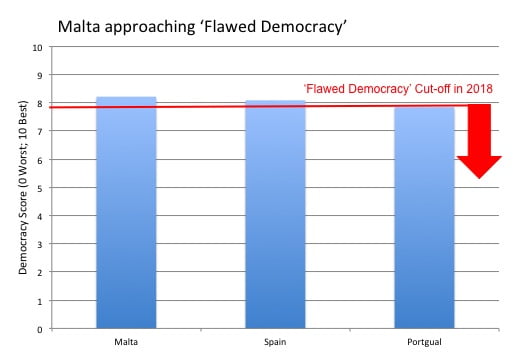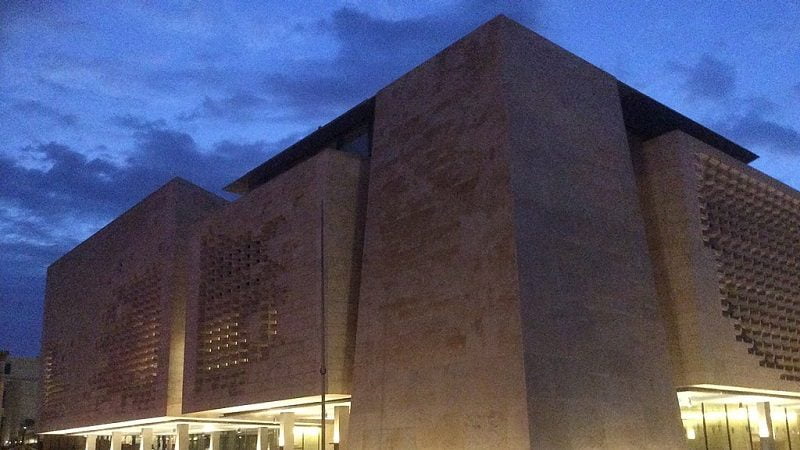Malta registered its second worst Democracy Score yet, the worst being last year’s, and its worst ever Democracy global ranking in the latest report from The Economist Intelligence Unit (EIU) published last week.
Following the report on Malta by the Venice Commission – Europe’s highest authority on democratic processes and the rule of law – the EIU report does not come as surprise.
Reporting in December 2018, the Venice Commission found that Malta does not have a separation of powers or constitutional control by the courts. It lacks functioning checks and balances, and citizens do not have access to justice in all cases, the Commission found.
But those reading TVM only would be left with a very different impression. The national broadcaster headlined a story on the EIU report as, ‘Malta improves position in World Democracy Index – climbs up to 18th placing’.
TVM conflated scores with rankings – or “placings” as it calls them. In reality, Malta’s global ranking dropped from 17th out of 165 countries in 2017, to 18th for 2018.

The independent media’s coverage of the report was perhaps more confusing. As an example, The Malta Independent headline ran, ‘Overall democracy declines in Western Europe, but Malta holds steady‘. The article made no mention of Malta’s falling global ranking or that the country is now at its lowest recorded point.
Lovin Malta wrote that, “Malta has once again been ranked as the 18th best functioning democracy in the world…Malta maintained its ranking from last year”. Yet, Malta’s global ranking has never been as low as it is today. It has, again, dropped one place since last year’s report.
Commentators based their articles exclusively on Malta’s incremental improvement in its Democracy Score.
Justice minister Owen Bonnici, currently fighting a constitutional case brought by activists who claim Bonnici is limiting their right to peaceful protest and to speak freely, wrote a 1,000-word opinion piece in which he takes credit for Malta’s incremental improvement in its score. It makes absolutely no mention of Malta’s falling ranking or that Malta’s at its lowest ever ranking.
The improvement in its score was not large enough, relative to all other countries, to improve its global ranking or to even “hold steady”. In short, Malta has fallen further and further behind.
Moreover, the improvement in its score is limited to one of the Democracy Index’s five categories – ‘Civil Liberties’.

In all other categories, Malta’s scores remain unchanged from 2017, a year in which Malta’s score and ranking recorded their sharpest ever declines due to the assassination of Daphne Caruana Galizia and its implications for freedom of expression.
The government has embarked on a series of civil liberty reforms, primarily targeting the LGBTIQ community, using soft civil liberty reforms to compensate for its erosion of fundamental rights.

While government staff pushed the line that Malta’s is “one of only 20 functioning democracies,” the country is in fact, now close to a ‘Flawed Democracy’ in the rankings, with a distinction of only 0.21 points – or one ranking – between Malta and the score of those that fail to meet the minimum standards of a democratic regime.












